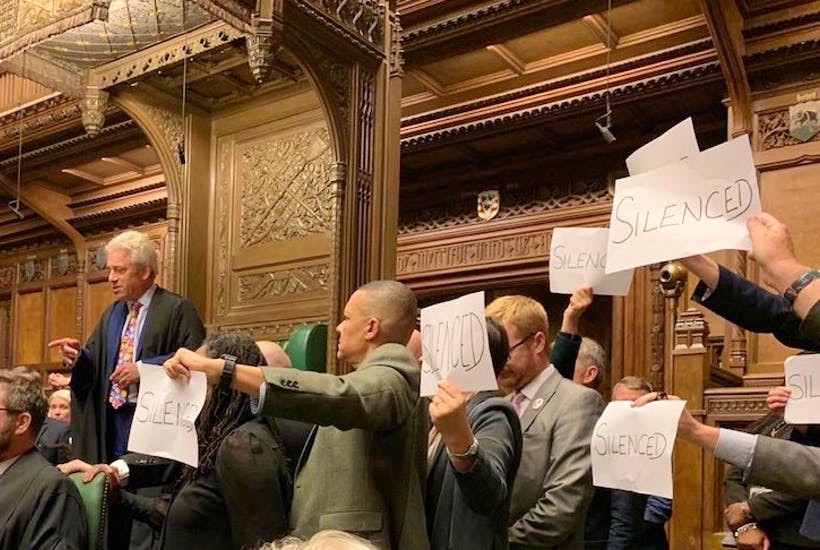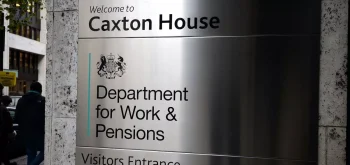If the executive can dissolve parliament for five weeks, what stops it dissolving parliament for five years? This was the question that Lord Pannick put to the High Court last week, and a question they rejected as a hypothetical, and possibly hyperbolic, argument. Yet, given that the High Court ruled that the matter was not justiciable, the natural conclusion is that even a five-year dissolution could not be ruled illegal by the courts. Such a prorogation would be a difference in degree, not in kind. Either both instances should be justiciable, or neither can be.
It could be that when the High Court referred to an ‘absence of judicial or legal standards’ in its judgment, it viewed a five week period as within the bounds of normality, and that a more sustained prorogation would fall outside of it. Should a government try to prorogue for manifestly excessive period of time, like five years, a court may be able to find that such a blatant constitutional violation would be enough to change the substance. Similarly, the fact that the parliament was not prorogued immediately, but was given the opportunity – which it took – to force its will upon the government suggests that it was still able, in some ways, to hold the executive to account.
This argument, even if it may be legally coherent, is tenuous. A five-week prorogation is a glaring violation of the conventions that have governed its use. There is no prorogation in living memory that comes close to this (absent those where a general election took place), and there was no legitimate reason, as the Scottish Inner House found, for a five-week period to be in place here. There were, however, a plethora of illegitimate reasons for why the government might prefer to minimise scrutiny, even if parliament had removed its preferred course of action.
This can be coupled with the fact that the decision of the High Court sets a precedent that other, future, courts will have to abide by. Prorogation is a virginal topic, and if the Supreme Court endorses such an approach, a precedent will have been set that minimises judicial intervention. Should any future prorogation take place (possibly in the very near future, if the musings of Dominic Cummings are anything to go by), the courts will either have to reverse this precedent, or circumnavigate it.
Legally, this is not a huge hurdle, but it could be politically fraught. Already, the courts are being accused of being biased. Kwasi Kwarteng, a Cabinet minister presumably reading lines scripted by No. 10, impugned the motives of the Scottish judges. In a future scenario any minister in a similar role would be able to point to the failure of a court to follow precedent, and argue that the courts had made a decision not based on law, but biased opinion. This would be no more true than Kwarteng’s reprehensible comments on Wednesday, but would come laden with added, unwanted and damaging weight.
A failure to rule this prorogation unlawful would also serve to legitimise authoritarian instincts. In this hypothetical five-year scenario, it seems probable that our constitution would have become so devalued as to allow any judicial decision to be treated contempt. An executive that feels entitled to dissolve parliament for five years is unlikely to be especially concerned with the opinion of eleven justices in robes sitting across the road. When we already have a government ruminating upon ignoring legislation, the courts should be wary of giving such thoughts any further succour.
Nor should the courts be trusting in political machinations to resolve the issue. In our constitutional system, whatever parliament legislates for is lawful. This does not mean that whatever parliament does not legislate against is also lawful. Perhaps parliament could have legislated against prorogation, or passed a motion condemning it, but the fact that they did not do so does not legitimise Johnson’s actions. If we look across Europe to Prime Minister Orban’s conduct in Hungary, we are provided with a clear example of how parliament and the constitution can be slowly degraded. There, he has gained a super-majority in the legislature through treating constitutional norms with contemp t- acting unconstitutionally, but legally. This has allowed him to assume near absolute control of the constitution, and from there, the country.
Striking this prorogation down as unlawful would be unprecedented, but proportionate. A time that sees constitutional constraints being treated with contempt is not a time to respond with timidity. Some academics and commentators have said that we should not panic, and they are right. But nor should we be inert. The UK constitution is currently the apocryphal frog being boiled in a pot. The courts shouldn’t just ignore the rising heat.







Back from the looking glass